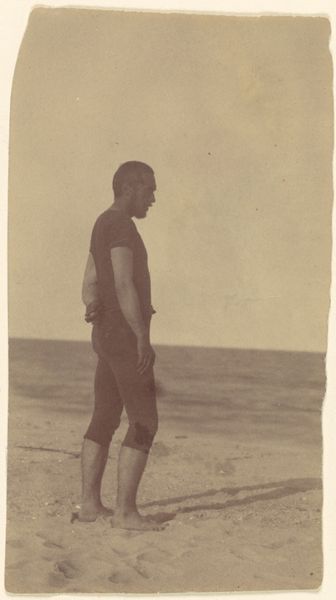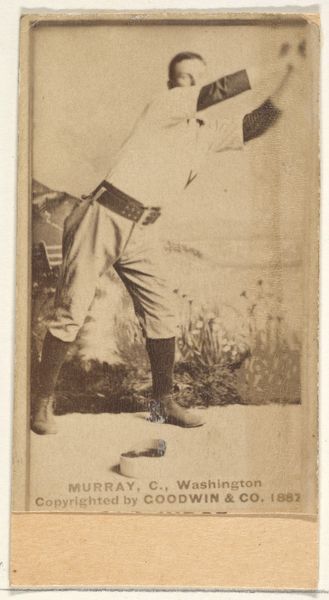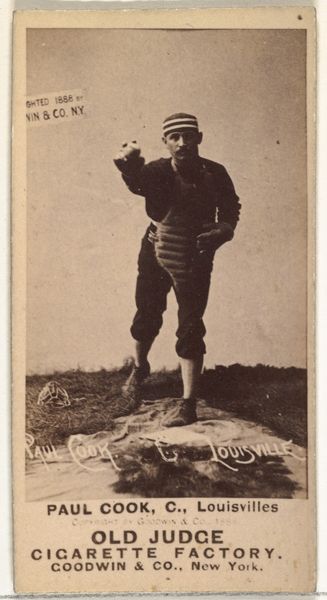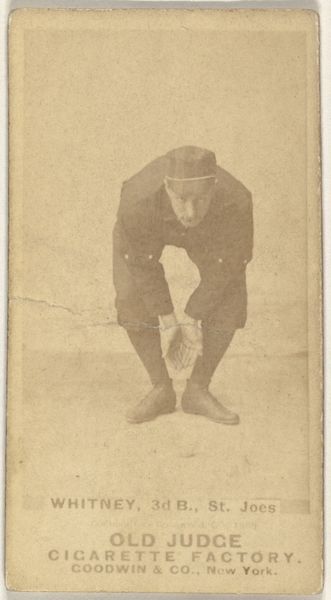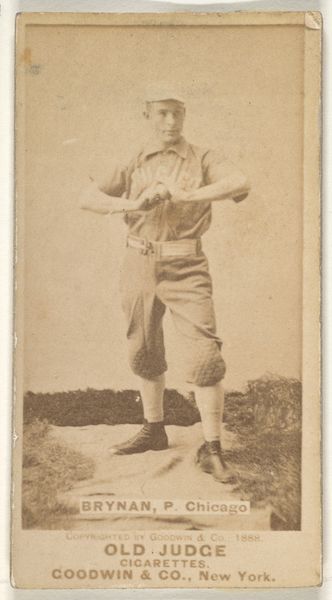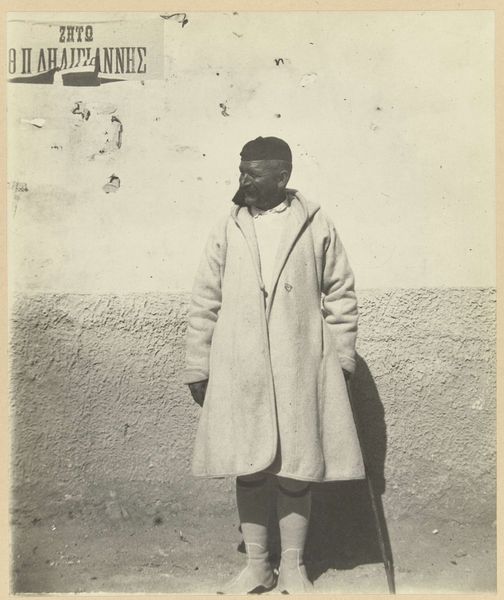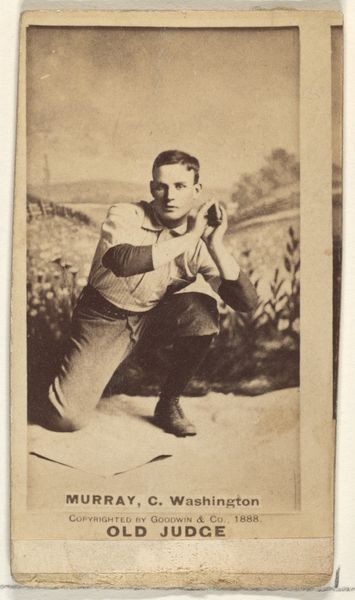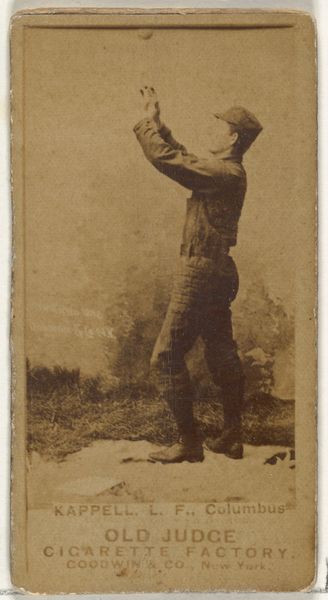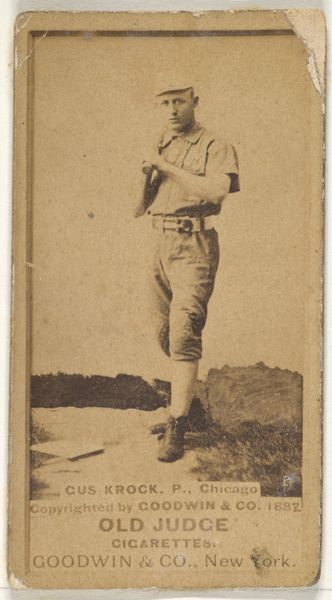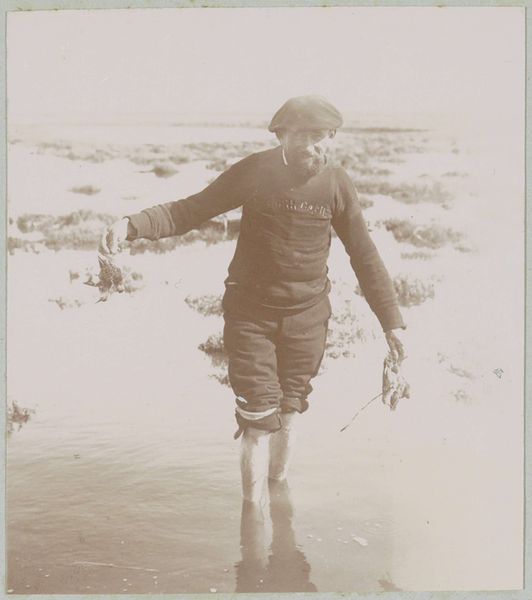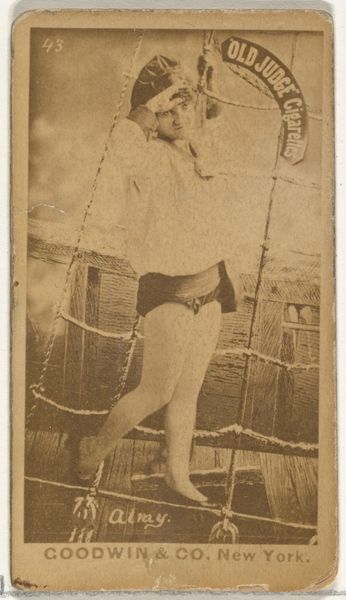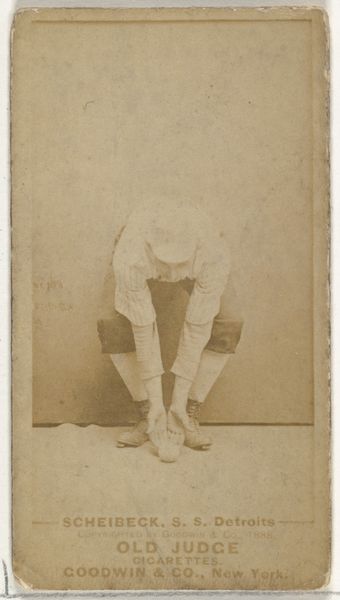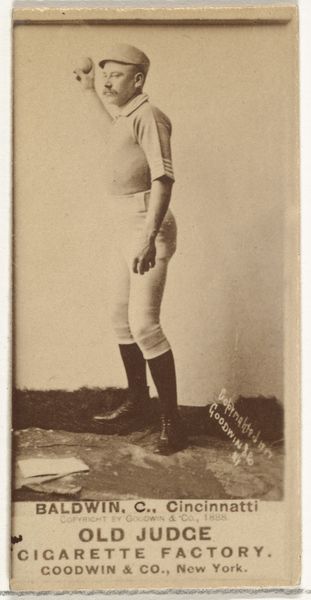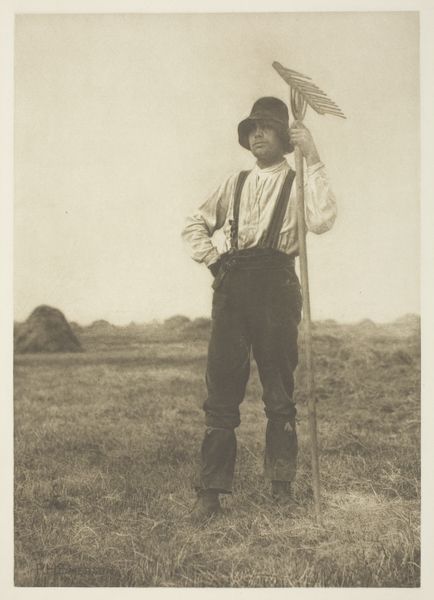
photography, gelatin-silver-print
#
portrait
#
landscape
#
outdoor photograph
#
archive photography
#
street-photography
#
photography
#
historical photography
#
gelatin-silver-print
Dimensions: image/plate: 12.7 × 10.2 cm (5 × 4 in.)
Copyright: National Gallery of Art: CC0 1.0
Editor: This photograph, titled "Angola, Louisiana" by Deborah Luster, created sometime in 1999 and rendered in gelatin silver print, possesses a stark and quiet atmosphere. The figure holding a horseshoe seems almost suspended between hope and the harsh reality of the landscape. How does this image speak to the public role of art, considering its somber subject matter? Curator: That's a very astute observation. The power of Luster's work, particularly this image from her series documenting Angola Prison, lies in its ability to force a dialogue about incarceration and its societal impact. Consider the landscape – it's not just a backdrop, it is also a symbol, reminding the viewer that this person is physically removed from society. The horseshoe, typically a symbol of good luck, adds another layer. Is it meant to provide good fortune, or is its placement a cynical joke at the subject’s confinement? What impact does the artist intention have on the subject's image? Editor: I see what you mean. It makes me think about the institutional gaze and how photography has been used historically to document and even dehumanize marginalized communities. Is Luster challenging that tradition, or perpetuating it? Curator: That’s a critical question to ask. Luster, in my opinion, confronts the visual shorthand of documentary photography. Through formal choices – the deliberate pose, the almost archaic printing process, the subject holding the horse shoe as if an object in a painting from antiquity - she humanizes, allowing the individual to exist beyond a mere statistic within the prison system. She makes a commentary of the impact that political forces and policies have on incarceration within the US. Editor: That makes so much sense. The details, like the horseshoe, are not just details, they become charged with meaning when seen in the context of Angola Prison's history and its cultural image. Curator: Exactly. Understanding the social context and the institution within which these photographs were created fundamentally alters our reading of them, pushing us to confront uncomfortable truths about justice, power, and representation. Hopefully one might question preconceived biases. Editor: I learned so much. It is interesting to analyse how historical context alters our understanding of photographs such as "Angola, Louisiana."
Comments
No comments
Be the first to comment and join the conversation on the ultimate creative platform.
